Cocaine Addiction: The Dangers of Stimulant Abuse

According to the National Institute on Drug Abuse (NIDA), cocaine is a highly addictive stimulant drug. It’s powdery, white, and crystal-like in appearance. Some people heat cocaine and make it into a rock called “crack cocaine”. Common slang terms for cocaine include coke, crack, blow, snow, and rock. People can use cocaine by snorting it, smoking crack rocks, or dissolving it into a liquid that they then inject into their veins. Many people use cocaine for the high that it provides, but don’t realize that cocaine addiction can happen quite easily.
What Cocaine Does in the Brain
Cocaine is addictive because it rewards your brain by increasing levels of a chemical called dopamine. Over time, that dopamine builds up and your brain becomes accustomed to having an abundance of it. When that happens, someone who uses cocaine has to use larger and larger amounts to achieve the same high. Many times, a cocaine addiction develops. Once you’re addicted, you may even need to use cocaine just to avoid withdrawal symptoms.
The increased dopamine levels that cocaine provides can elevate your mood and increase your alertness and energy levels. While these may appear to be beneficial at first, cocaine also produces unwanted side effects, such as paranoia and sensitivity to noises and touch. Some people may even become violent or engage in erratic behavior after using cocaine.
The Dangers of Cocaine Abuse
Cocaine is far from harmless and can actually induce both short-term and long-term health problems. Because cocaine is a stimulant, it increases your heart rate and blood pressure. In the short-term, cocaine abuse can result in an elevated or abnormal heart rate and constrict your blood vessels. It is also known to create other unpleasant symptoms, such as increased body temperature, nausea, and tremors.
Over the long-term, the effects of cocaine addiction can be severe. High amounts of cocaine use can lead to heart attacks, because of the excess stress on the heart cocaine places by elevating both your blood pressure and heart rate. If you snort cocaine, you may experience nose bleeds and runny noses, and if you smoke crack cocaine, you are at risk for respiratory problems, asthma, and pneumonia. Injecting cocaine increases the chance of infections and HIV. It can also cause your veins to collapse. In addition, cocaine can decrease your appetite, resulting in weight loss and malnutrition.
Ongoing cocaine use can also cause mental health issues, such as extreme paranoia. With continued cocaine use, a person may become extremely distrustful, fear that others are out to get them, or become disconnected from reality. Some people also experience hallucinations.
With this drug addiction, you may experience unpleasant withdrawal symptoms when your cocaine use stops or decreases. Cocaine withdrawal can cause:
- depression
- sleep disturbances
- overeating
- fatigue
- thinking problems
Cocaine Overdose
It is possible to suffer from a cocaine overdose and experience serious consequences, including death. You can even overdose on cocaine the very first time you use this stimulant drug. According to addiction experts, using too much cocaine can result in heart attacks, seizures, and strokes. Some people may suffer from severe anxiety or paranoia during an overdose, and others may hallucinate, overheat, or struggle to breathe.
Unfortunately, today’s cocaine can be laced with powerful opiates like Fentanyl. When cocaine users unknowingly use drugs that are laced with these substances, they are at increased risk of overdosing. Fentanyl is linked with the recent increases in overdose deaths in cocaine users.
There is no medication that specifically stops a cocaine overdose, and hospital treatment is often necessary. The specific type of treatment depends on the effects of the overdose. For example, a person who suffers from a heart attack during a cocaine overdose would receive emergency treatment to help blood begin flowing to the heart again.
Cocaine Abuse Statistics
The Substance Abuse and Mental Health Services Administration conducts the National Survey on Drug Use and Health, which provides statistics on cocaine abuse. According to the most recent survey results, 1.9 million Americans aged 12 and above report current cocaine use, with 432,000 using crack cocaine. The rates of cocaine abuse have remained relatively steady since 2007. Data show that cocaine abuse is uncommon among adolescents aged 12 to 17 and most common between the ages of 18 to 25.
Survey results also provide information on cocaine addiction. In 2016, 867,000 people met diagnostic criteria for a cocaine use disorder, or addiction, and this diagnosis was most common in the age range of 18 to 25. Rates of cocaine addiction remained mostly steady between 2010 and 2016.
Cocaine Addiction Treatment
Cocaine addiction can cause significant health problems. It can also interfere with your personal life, impede your ability to have a career and hinder your fulfillment of simple life functions, like paying bills and maintaining a household. Despite these problems, it’s often difficult to simply stop using cocaine. For these reasons, substance abuse treatment, usually at a treatment center, is often necessary for someone who has become cocaine-dependent.
Psychological treatments, such as cognitive behavioral therapy, may benefit some people. Others may find success with contingency management programs, in which you receive rewards for remaining abstinent. Sober living communities and 12-step programs are also available to treat cocaine addiction.
Scientists have conducted research to find which treatments are the most effective for cocaine addiction. One recent study compared programs involving contingency management to standard treatment programs for crack cocaine addiction. Study participants received money if they stayed cocaine-free. Results showed that those in the contingency management program attended more treatment sessions and were more likely to remain in treatment and stay abstinent from cocaine. Contingency management seems to be a viable treatment option for cocaine dependence.
Scientists have also found that cognitive behavioral therapy is effective in treating cocaine addiction. Research shows that cognitive behavioral therapy is effective for reducing relapse and promoting recovery. In fact, a 2012 study shows that this type of therapy on its own is beneficial for abstinence and retention in treatment.
Cocaine addiction can cause a number of physical and mental health consequences, but with treatment, recovery is possible. There are effective treatment programs available for cocaine addiction and the Substance Abuse and Mental Health Services Administration provides a treatment hotline for anyone who is seeking additional information about available resources. Reaching out for help is the first step toward recovery from cocaine dependence.
Start Your Path to Recovery
If you or a loved one are ready to start your path toward a better life, The Woods at Parkside is here to help. Call (614) 471-2552 to speak with one of our treatment specialists and learn more about our programs.



























